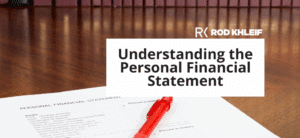What You Need to Know About Multifamily Real Estate in a College Town
As I often say, your success in multifamily real estate depends on one thing: cash flow.
One of the keys to cash flow, of course, is keeping your units occupied. This is what makes investing in college towns so attractive. Every Fall, you’re guaranteed an influx of renters who’ve already paid tuition and need a place to live.
But, of course, renting in a college town raises all sorts of concerns. What if the students aren’t qualified? What if they wreck my property? What if the college goes under?
Apply for a Free Strategy Call to Evaluate Your Multifamily Investing Business Goals
In this post, I want to share the pros and cons of investing in a college town, followed by some advice for how you can wisely take advantage of this great opportunity.
Pros: Why you Would buy Multifamily Real Estate in a College Town
There are plenty of reasons why multifamily real estate does well in college towns:
- Consistent Demand — Every year, like clockwork, you’ve got a fresh batch of renters ready to come in and take over. While this may cause some trouble with timing (see below), higher demand means lower vacancy and higher NOI.
- Built-in Rental Increases — With revolving occupancy comes built-in rent increases. You may prefer to rent long-term, but the benefit of an ongoing parade of 1-year leases is that you can increase regularly without “losing” a tenant.
- Stable Rental Market — Consistent demand also leads to a strong, stable rental market. So long as the school is operating well and its financial position is solid, there’s virtually no danger of the bottom unexpectedly dropping out on you.
- Appreciation — It’s hard to escape the pervasive effect a healthy school has on its surrounding economy. As the neighborhood thrives, so will your investment.
- Decent Return on Investment — Lower vacancy, higher NOI, a steadily advancing rental market—all these factors add up to make for healthy returns on college town multifamily investment.
Cons: Why you Wouldn’t buy Multifamily Real Estate in a College Town
Even with all the pro’s I mentioned above, there are some potential drawbacks to buying a multifamily property in a college town:
- Turnover — Tenant turnover is the bane of every landlord’s existence. Even if you stack leases one after another (which you certainly should), you’ll still have to deal with the typical headaches and expenses of turning a unit. Keep in mind, however, that smart college landlords work leasing and cleaning fees into every lease. In most college towns, these conditions are par for the course.

- Timing/Competition — Each town is different, but you’ll normally encounter a narrow window when renters swarm the apartment scene looking for units for the next year. In general, this is a good thing. But, if your tenant breaks a lease early and you find yourself off cycle, it can be difficult to find a renter “out of season.” Don’t forget, though, not all college town renters are students.
- Parties & Problems — This is the standard worry for every college landlord. The last thing any of us wants is for one of our properties to end up as everybody’s favorite weekend party house.
- Poor Upkeep — College students rarely know how to take care of a property. After all, this is likely the first time they’ve ever lived alone or outside of a dorm. That means you can expect plenty of deferred maintenance at the end of the year.
- Management Intensive — If you self-manage, you can expect college students to require more interaction than your typical tenant. Again, they’re not used to living on their own. You can also expect added nuisances like noise complaints, roommate conflict, and early lease breaking.
Advice: How to Succeed with Multifamily Real Estate in a College Town
On balance, I think the pros outweigh the cons college town multifamily investment. That said, there are a few steps you should take to ensure you protect yourself:
- Do Your Homework — Find out what’s happening with the school itself. Is it growing or is it shrinking? What do on-campus housing rates look like? Does the school impose a cap on neighboring rental rates? Also, what’s the ratio of on-campus to off-campus housing in the area? The last thing you want is to be undercut by an oversupply of cheap on-campus housing.
- Skip the Undergrads — Unless you’re local, focus on property classes that serve mid- to high- level demographics. In other words, invest in the kinds of properties that will serve graduate students, faculty, and administrators.
- Get Professional Help — Especially if you’re not local, take the time to learn the market from experienced investors who are already there. On top of that, find an experienced property manager who knows the market and works specifically with college housing. With a nuanced read on the renter population and experience with the school, they’ll be able to help you edge out the competition.
Do you have specific questions about a particular property or market? Bring them to our Multifamily Real Estate Investing Group on Facebook. There, you’ll find more than 20,000 investors ready and eager to help you succeed in multifamily investment.
Join Us for #MultifamilyBootcamp
MultifamilyBootcamp.com
If You’re Ready to Take Your Multifamily Real Estate Investing to the Next Level…
Check out Rod’s Extensive Multifamily Course & Coaching Program!
Related quotes to consider:
[Follow Rod on Instagram for tons of great quotes]



















